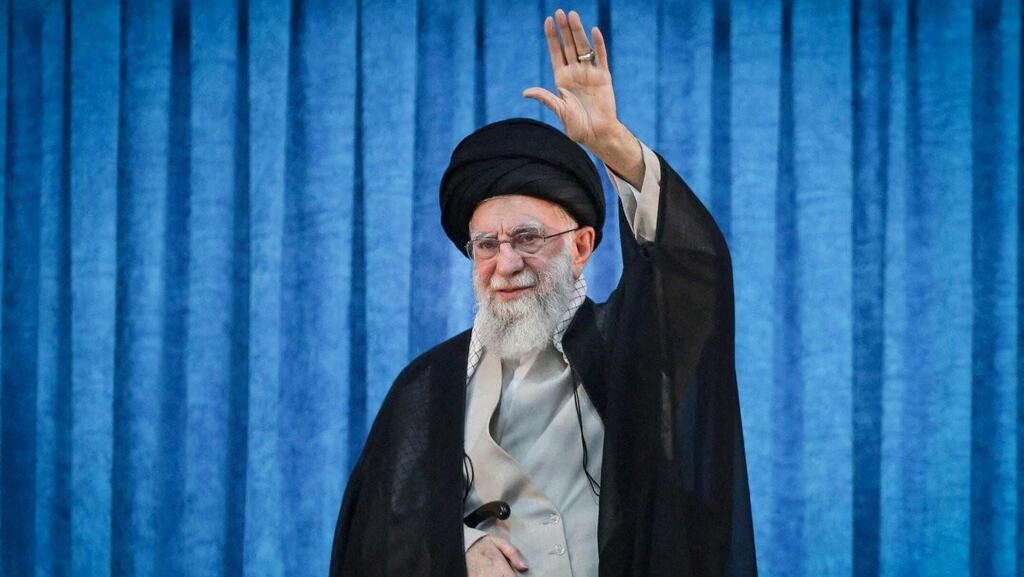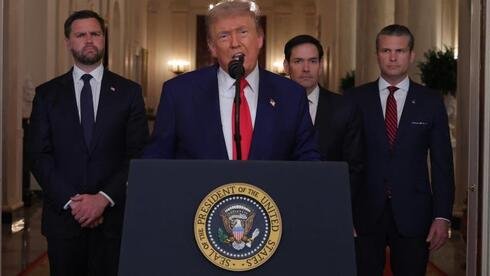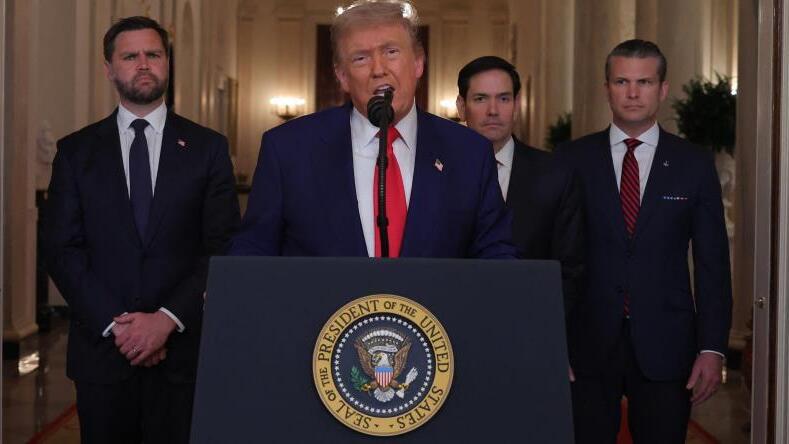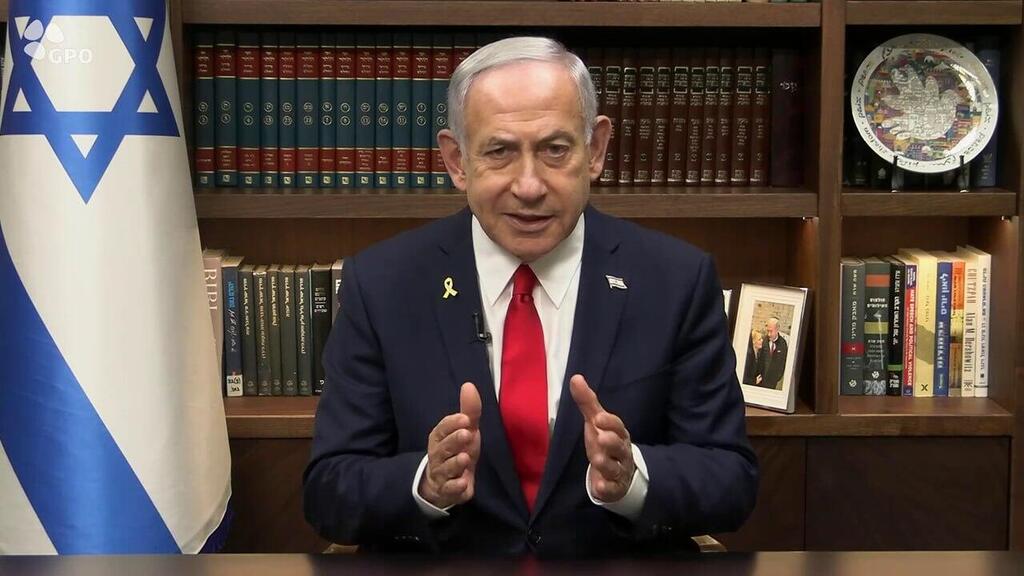Calling Iran the "bully of the Middle East" in his dawn address, Trump conveyed utter exhaustion with Tehran's provocations, culminating in a massive military investment proving U.S. commitment to prevent an Iranian nuclear weapon. This unambiguous demonstration of resolve – that America will pursue those walking this path – carries greater weight than the rubble itself.
This strike marks the definitive end to an "age of bluffs" in the Middle East, declared after October 7 – the era where genocidal terror terror groups built infrastructure to destroy Israel on its borders while we told ourselves they were deterred; where Israeli society pretended it could handle draft inequality; where our deterrence and warning capabilities were overestimated.
The most dangerous strategic bluff was Iran's: presenting as a state while effectively operating as a terror organization – funneling millions to Hamas for arming, building unprecedented rocket stockpiles via its proxy Hezbollah, aiding the Houthis and propping up Bashar Assad's criminal regime – all while negotiating respectably with the West.
It played a game, framing its nuclear program as sovereign rights when it was a transparent bid to reach, if not cross, the nuclear weapons threshold. Hezbollah's Hassan Nasrallah, Hamas's Ismail Haniyeh, Syria's Assad and now Iran's Ali Khamenei all underestimated the profound shift in Israel post-October 7 and the determination of Israeli society to defeat those seeking its elimination.
They overestimated their own power to deter Israeli action in Gaza, against Hezbollah or inside Iran. Part of this miscalculation stemmed from underestimating Israel's high-tech culture, which fuels its remarkably effective military intelligence apparatus. The price paid by these "Axis of Resistance" leaders for these errors has been devastating, often fatal.
Trump's statement following Iran strikes
(Viodeo: The White House )
America's entry into direct conflict with Iran represents Israel's clearest political victory since the war began on October 7. Primary credit goes to Trump: his measured address demonstrated responsibility and resolve. The secrecy of the U.S. operation, devoid of leaks and marked by deliberate media deception, signals the administration's rapid maturation.
Trump consistently demanded one of two outcomes: Iran's "unconditional surrender" – meaning halting enrichment – or U.S. military involvement. There was no middle ground; this president rejected endless, fruitless negotiation rounds, often romanticized internationally as "chess games" showcasing Iranian diplomatic prowess but achieving nothing.
Second, prompting the White House decision to join the war directly following the Israeli Air Force and the Military Intelligence Directorate's operational successes, leading to U.S. strategic bombers and cruise missiles striking Natanz, Isfahan and Fordow nuclear sites.
Until the U.S. struck at dawn, few Iran experts believed regime change was possible. The Military Intelligence Directorate reacted cautiously and skeptically to suggestions that an aerial bombing campaign could spark an Iranian counter-revolution.
Intelligence officers, achieving remarkable successes now, were candid about the unlikelihood of revolution or coup, noting their failure even to predict the Syrian regime's near-collapse. Iran's policy and the scale of its response to the U.S. attack will crystallize within the next 24 hours, shaping the path ahead for both the U.S. and Israel.
With the U.S. now actively at war with Iran, all options are on the table. A superpower bombing Iran vividly illustrates the regime's weakness to internal opposition and factions, tempting attempts to topple it.
Beyond these questions lies a simple fact: the U.S. bombed Iran's nuclear facilities and Trump thanked Israel, the IDF and Netanyahu. Those who claimed Trump would waver, fear the decisive step or fold at the last minute were proven wrong. China observed a great power willing to defend its interests and allies regionally.
Russia saw Iran's capabilities, partly reliant on Russian weapon systems, easily shattered by the Israeli Air Force. By deciding to bomb Iran's nuclear sites, Trump began rebuilding the image of a superpower that stands by its principles and is prepared to deter adversaries. This matters not just to Israelis but to the entire world.
3 View gallery


Iran's Supreme Leader Ali Khamenei
(Photo: Office of the Iranian Supreme Leader/WANA/Handout, Reuters)
Iran relentlessly invested its resources in building militias and pursuing nuclear enrichment – an outward-facing strategy solely directed at enemies, the supreme priority of a fascist theocracy seeking confrontation. It was all in vain.
Not grand strategists, but a fundamentalist gang that crushed its own nation, brought death and suffering to the region and built towers on imagined power. It is good to witness their unraveling following Israel's war and now the U.S. strike. This is not the end but it is certainly the end of the beginning.





